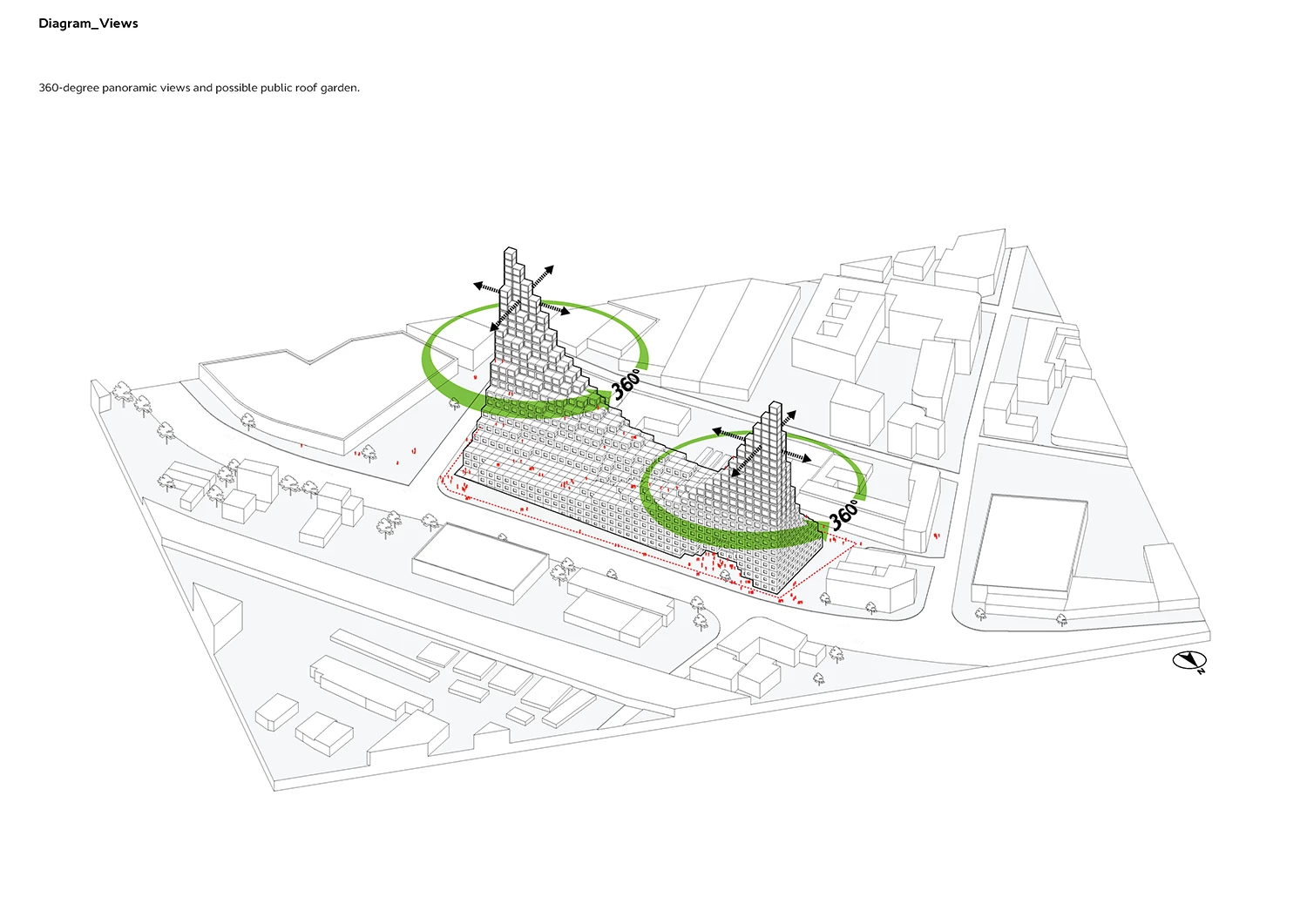British firm Architects of Invention has drawn inspiration from the Hanging Gardens of Babylon, one of the Seven Wonders of the Ancient World, for its latest project. Envisioned for Birmingham, UK, the Garden Hill proposal consists of two wooden residential towers with an interesting stepped design and some sustainable features.
The Garden Hill proposal's two connected towers would rise to 25 stories, with a total floorspace of 38,500 sq m (414,410 sq ft). They would include around 500 residences, 60 percent configured as one bedroom units, and 40 percent with two bedrooms.
The units would measure 40 - 75 sq m (430 - 807 sq ft), but Architects of Invention would try to mitigate any lack of space by providing multiple shared and private garden terraces at every level, plus a spacious rooftop garden. In addition, novel shared facilities include music recording studios and small rental units for startups. The brief also calls for between 120 - 200 car parking spaces and retail spaces on street-level.
The building would be constructed from cross-laminated timber (CLT), like some previous wooden towers we've reported on. Both electricity and hot water would be supplied by roof-based solar panels and the architects make mention of excellent insulation and the use of passive ventilation.

If it actually went ahead, the project would reference Birmingham's multiculturalism nicely and also fit in well with the city's existing high-profile architecture, such as Mecanoo's Library of Birmingham and Future Systems' award-winning Selfridges Building (captured here by New Atlas' photography expert Simon Crisp).
That said, while there have been talks between Architects of Invention and a Chinese private equity fund, it's still a concept with no immediate plans to build. It's probably also worth pointing out that nobody really knows what the Hanging Gardens of Babylon actually looked like (assuming it indeed existed), so don't think of this as a copy of the original in any way, just inspired by it.
The proposed budget for Garden Hill is £70 million (roughly US$90 million). We'll let you know if anything ever comes of it.
Source: Architects of Invention









